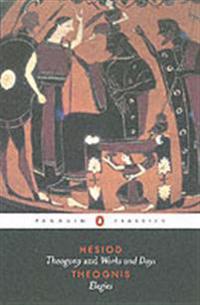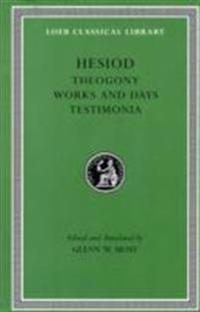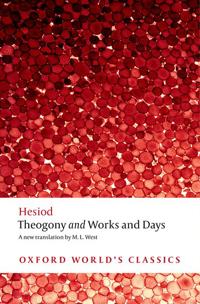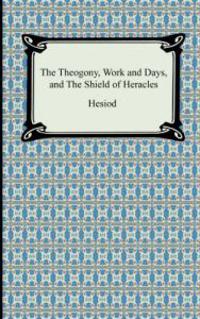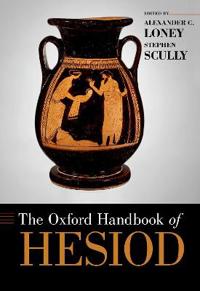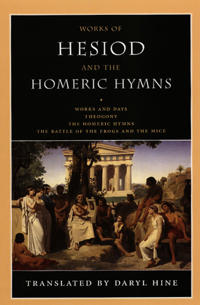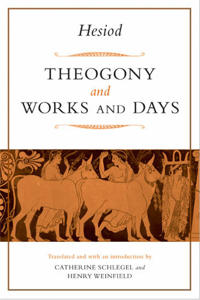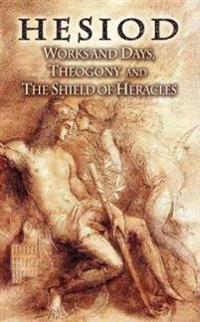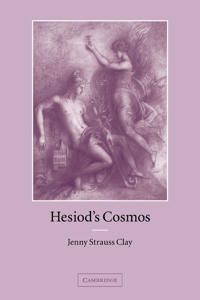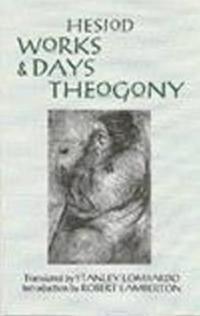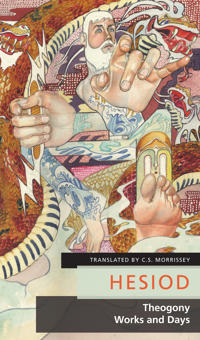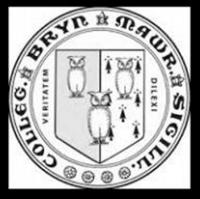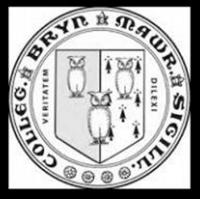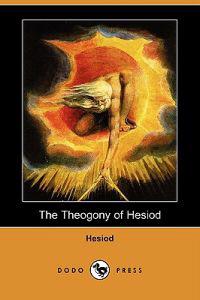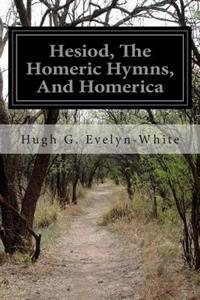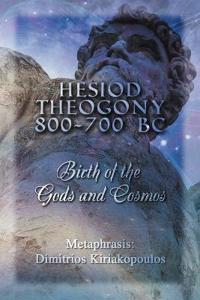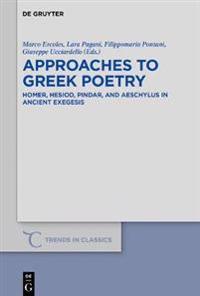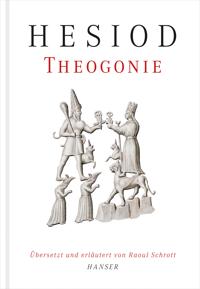Hesiod and Theognis (Storpocket)
avHesiod, Theognis
ISBN: 9780140442830 - UTGIVEN: 197302Together the poetry of "Hesiod and Theognis" offers a superb introduction to the life and thought of ancient Greece. Hesiod's "Theogoney" (c. 725 BCE) is a powerful creation myth: an epic, bloody tale of dark forces, sex and violence, tracing the history of the world from primeval Chaos to the estab[...]
Hesiod (Inbunden)
avHesiod
ISBN: 9780674996229 - UTGIVEN: 200701Hesiod describes himself as a Boeotian shepherd who heard the Muses call upon him to sing about the gods. His exact dates are unknown, but he has often been considered a younger contemporary of Homer. This volume of the new "Loeb Classical Library" edition offers a general introduction, a fluid tran[...]
God and the Land: The Metaphysics of Farming in Hesiod and Vergil. With a Translation of Hesiod's Works and Days by David Grene (Inbunden)
avStephanie Nelson
ISBN: 9780195117400 - UTGIVEN: 1998-04-01Theogony and Works and Days (Pocket)
avHesiod, M. L. West, Hesiod
ISBN: 9780199538317 - UTGIVEN: 200907Hesiod, who lived in Boetia in the late eighth century BC, is one of the oldest known, and possibly the oldest of Greek poets. His Theogony contains a systematic genealogy of the gods from the beginning of the world and an account of the struggles of the Titans. In contrast, Works and Days is a com[...]
The Theogony, Works and Days, and the Shield of Heracles (Pocket)
avHesiod, Hugh G. (TRN) Evelyn-White, Hesiod
ISBN: 9781420930740 - UTGIVEN: 2008-01The Oxford Handbook of Hesiod
ISBN: 9780190209032 - UTGIVEN: 2018-09This volume brings together 29 junior and senior scholars to discuss aspects of Hesiod's poetry and its milieu and to explore questions of reception over two and half millennia from shortly after the poems' conception to Twitter hashtags. Rather than an exhaustive study of Hesiodic themes, the Handb[...]
Works of Hesiod and the Homeric Hymns (Pocket)
avDaryl (TRN) Hine
ISBN: 9780226329666 - UTGIVEN: 2007-08In "Works of Hesiod and the Homeric Hymns", highly acclaimed poet and translator Daryl Hine brings new life to the words of Hesiod and the world of Archaic Greece. Unlike most available prose renderings of their works, Hine's illuminating translations present these classics as they originally appear[...]
Theogony (Häftad)
avHesiod
ISBN: 9780472069323 - UTGIVEN: 2006-11Written in the late eighth century BC by Hesiod, one of the oldest known of Greek poets, "Theogony and Works and Days" represent the earliest account of the origin of the Greek gods, and an invaluable compendium of advice for leading a moral life, both offering unique insights into archaic Greek soc[...]
Hesiod
ISBN: 9780472081615 - UTGIVEN: 1991-11Epic poems by one who has been called the first Greek philosopher and theologian
Works And Days, Theogony And the Shield of Heracles (Häftad)
avHesiod
ISBN: 9780486452180 - UTGIVEN: 2006-09Works and Days: A Translation and Commentary for the Social Sciences (Pocket)
avHesiod
ISBN: 9780520203846 - UTGIVEN: 1997-01-24Hesiod's Cosmos (Häftad)
avJenny Strauss Clay
ISBN: 9780521117685 - UTGIVEN: 2009-07Hesiod's Cosmos offers a comprehensive interpretation of both the Theogony and the Works and Days and demonstrates how the two Hesiodic poems must be read together as two halves of an integrated whole embracing both the divine and the human cosmos. After first offering a survey of the structure of b[...]
Hesiod (Inbunden)
avGlenn W. (EDT) Most
ISBN: 9780674996236 - UTGIVEN: 2007-03This volume, which completes the new "Loeb Classical Library" edition of Hesiod, contains "The Shield" and extant fragments of other poems, including the "Catalogue of Women", that were attributed to Hesiod in antiquity. None of these is now thought to be by Hesiod himself, but all have considerable[...]
Works and Days and Theogony (Pocket)
avHesiod, Stanley (TRN) Lombardo, Stanley Lombardo
ISBN: 9780872201798 - UTGIVEN: 1993-10Translated by Stanley Lombardo. Introduction and notes by Robert Lamberton. Clear brief notes and a glossary make this a must for introductory courses.[...]
Theogony/Works and Days (Häftad)
avHesiod, Eric Voegelin
ISBN: 9780889227002 - UTGIVEN: 201209
Philosopher C.S. Morrissey adapts Hesiod's two great works, "Theogony" and "Works and Days," taking into account the poet's essential meditative insights that paved the way for the subsequent achievements of Greek philosophy, most notably of Plato, and thereby gave a distinctive shape to all of [...]Hesiod's Theogony (Häftad)
avRichard Hamilton, Richard Hamilton
ISBN: 9780929524153 - UTGIVEN: 1981-12Hesiod's Works and Days (Pocket)
avRichard Hamilton, Ellen Rainis, Rebecca Ruttenberg
ISBN: 9780929524542 - UTGIVEN: 1988-01Ovid And Hesiod (Inbunden)
avIoannis Ziogas
ISBN: 9781107007413 - UTGIVEN: 2013-04-11Explores the previously neglected influence on Ovid's Metamorphoses of Hesiod, the most important archaic Greek poet after Homer.[...]
Hesiod, the Homeric Hymns, and Homerica (Häftad)
avHugh G. Evelyn-White
ISBN: 9781497464117 - UTGIVEN: 2014-03Hesiod Theogony 800-700 BC (Häftad)
ISBN: 9781622123575 - UTGIVEN: 2013-01Hesiod Theogony 800-700 B.C. is a highly engaging book that provides a practical methodology for studying the ancient Greek language. The longest of the three surviving works of Hesiod, Theogony is a story consisting of 1022 verses that describe the creation of the cosmos and the birth of the Gods. [...]
Approaches to Greek Poetry: Homer, Hesiod, Pindar, and Aeschylus in Ancient Exegesis
ISBN: 9783110629606 - UTGIVEN: 2019-01In the last decades the field of research on ancient Greek scholarship has been the object of a remarkable surge of interest, with the publication of handbooks, reference works, and new editions of texts. This partly unexpected revival is very promising and it continues to enhance and modify both ou[...]

